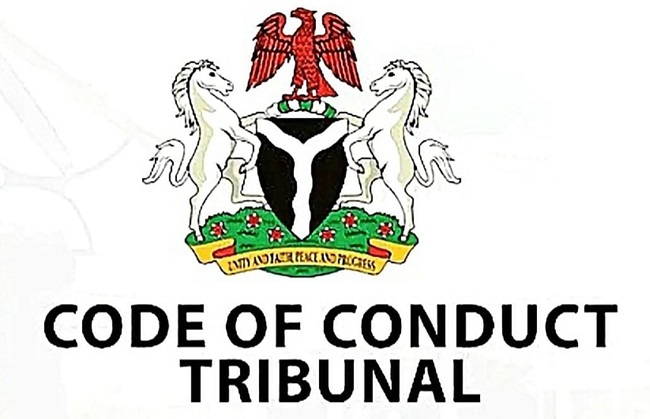Dr. Mainasara Kogo, Chairman of the Code of Conduct Tribunal (CCT), delivered a fervent call to action against terrorism and banditry in Nigeria at the 2025 Sir Ahmadu Bello National Annual Memorial Conference. Held at Arewa House in Kaduna, the conference, themed “Nigeria’s Leadership for National Cohesion and Stability, Under Contemporary Governance,” brought together dignitaries from across the Northern region to discuss critical national issues. Kogo’s address centered on the urgent need for aggressive military intervention, advocating for the bombardment of nine key forests across the North, which he identified as havens for terrorists and bandits. This drastic measure, he argued, would cripple the operational capacity of these criminal elements, paving the way for subsequent development and economic revitalization.
Kogo specifically pinpointed nine forested areas as requiring immediate military attention: Sambisa Forest in Borno State, the areas surrounding the Mandara Mountains extending to Lake Chad, Falgore Forest in Kano State, Rugu Forest in Katsina State, Sabon Birni Forest in Sokoto State, Dansadau Forest in Zamfara State, Birnin-Gwari Forest in Kaduna State, Kontagora Forest in Niger State, and Birnin Kogo Forest, also in Katsina State. He argued that bombing these forests into ashes would effectively eliminate the terrorists and bandits, denying them their sanctuary and disrupting their operations. This aggressive approach, while seemingly drastic, reflects the urgency and gravity of the security situation in the affected regions. Following the proposed bombardment, Kogo envisioned these areas being transformed into belts of “industrial commercial agriculture,” providing employment opportunities for the youth and addressing another form of terrorism – hunger.
Kogo’s proposal extended beyond military action, encompassing a comprehensive overhaul of Nigeria’s security architecture. He advocated for the creation of specialized security bodies, including the National Border Security Police, National Ports Police, National Airports Police, National Cyber Crime Police, and National Anti-Terrorism Police. These specialized units, he believed, would enhance security effectiveness by focusing on specific areas of vulnerability. Furthermore, he emphasized the need for a thorough audit of security spending over the past two decades. This audit would ensure accountability and transparency, revealing the effectiveness of past expenditures and informing future security investments. He highlighted the need to address the issue of impunity, citing the recurring instances of seized arms shipments without any subsequent convictions. He stressed the importance of holding perpetrators accountable to deter future criminal activities.
Kogo’s recommendations underscored a multi-pronged approach to tackling insecurity, combining decisive military action with long-term economic development and institutional reforms. He emphasized the need to not just neutralize the immediate threat but also address the root causes of insecurity, including poverty, unemployment, and a porous security apparatus. By integrating security measures with economic development initiatives, he proposed a more sustainable solution that would not only eliminate the current threat but also prevent future resurgence. The transformation of the bombed forests into agricultural and industrial hubs would create employment opportunities and stimulate economic growth, thereby addressing the underlying socio-economic factors that contribute to insecurity.
The call for a security spending audit reflects a growing concern about the effectiveness of current security strategies and the allocation of resources. Kogo’s demand for transparency aims to ensure that funds are being used effectively and that those responsible for mismanagement are held accountable. This call for accountability resonates with the wider public sentiment demanding greater transparency and efficiency in government spending, particularly in the security sector. The creation of specialized security bodies is aimed at addressing the current security structure’s perceived shortcomings, which Kogo views as fragmented and lacking in specialized expertise. By focusing on specific areas like border security, ports, airports, cybercrime, and anti-terrorism, these specialized units would enhance security effectiveness and improve coordination.
The 2025 Sir Ahmadu Bello National Annual Memorial Conference provided a platform for critical discussions about Nigeria’s national cohesion and stability. Kogo’s address, while controversial in its call for aggressive military action, highlighted the urgent need for decisive action against the escalating security challenges. His proposals, encompassing both short-term interventions and long-term solutions, sparked debate about the most effective strategies for tackling insecurity in Nigeria. The conference also served as a reminder of the legacy of Sir Ahmadu Bello, a prominent figure in Nigerian history, and his contributions to national development. The focus on national cohesion and stability underscored the importance of unity and collaborative efforts in addressing the complex challenges facing the nation. The contributions of other speakers, including the Vice Chairman of the Arewa Consultative Forum and the Director-General of the Centre for Democratic Development Research and Training, further enriched the discourse, offering diverse perspectives on the issues discussed.


